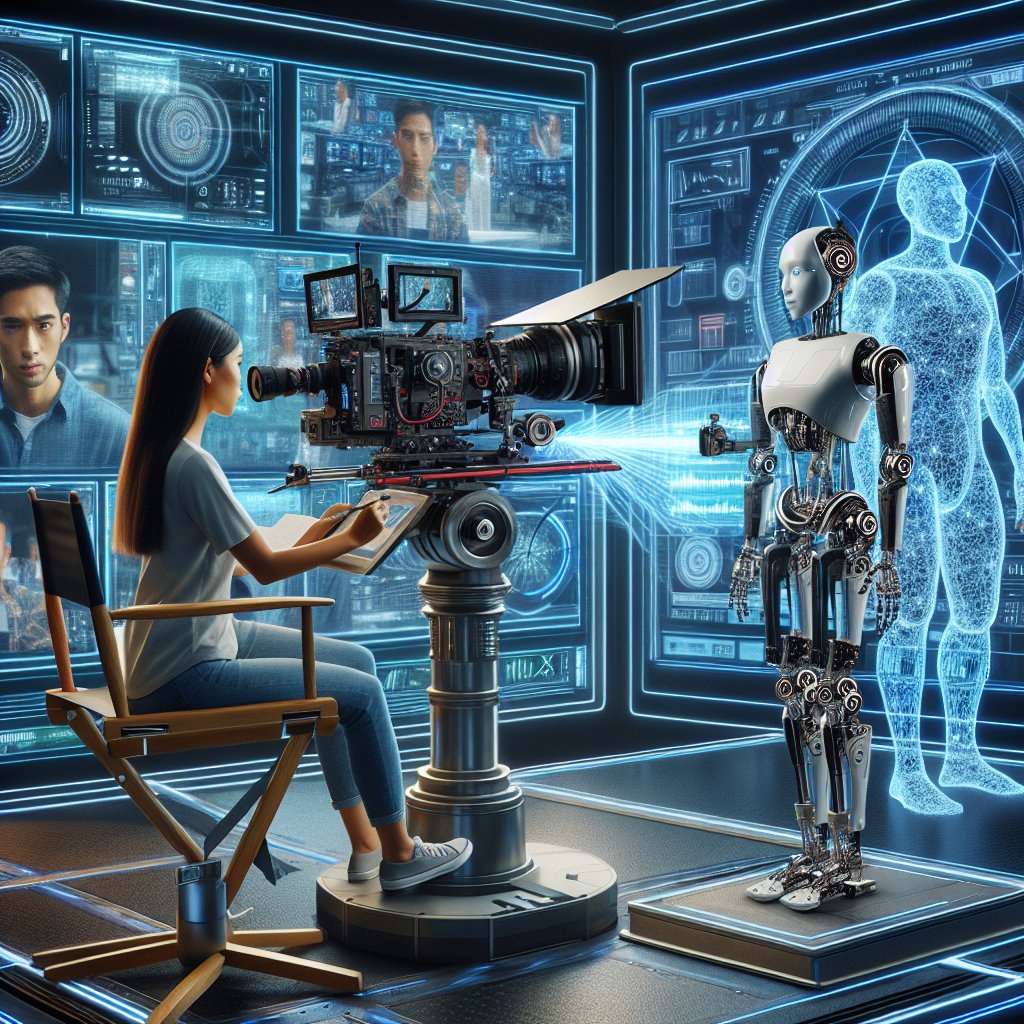The rapid evolution of Artificial Intelligence (AI) has sparked intense discussions around its impact on various professions, particularly in the creative industry. When it comes to cinematography, a realm where artistic vision and technological aptitude intertwine, the question of AI’s potential to replace human cinematographers is at the forefront of current debates. The future of cinematographers with AI promises a landscape where technology enhances human expertise, offering groundbreaking tools for visual storytelling and redefining the role of the cinematographer.
Use of AI for Cinematographers
The integration of Artificial Intelligence (AI) into the realm of cinematography is revolutionizing the way films are shot, edited, and even conceptualized. AI technology is bringing a new level of precision and creativity to cinematographers, enabling them to achieve intricate shots and effects with greater ease. By leveraging AI algorithms, cinematographers can now utilize advanced camera stabilization techniques, automate tedious processes such as color grading, and even predict the best lighting setups for a specific scene. The technology is not just streamlining workflows but also expanding the artistic capabilities of professionals, allowing for more ambitious and visually stunning projects.
The Potential for AI to Replace Cinematographers
The rapid advancement of artificial intelligence (AI) permeates numerous industries, revolutionizing processes and raising the question of its impact on creative careers, such as that of cinematographers. Cinematography, traditionally a deeply human and artistic vocation, relies on vision, intuition, and experience to craft the visual narrative of films. However, AI introduces new possibilities by bringing sophisticated algorithms capable of analyzing and replicating visual styles, efficient data processing for image optimization, and automation of certain camera operations. Aspiring filmmakers and seasoned professionals are keen to understand how AI might change their role in the movie-making process, whether it will serve as a tool enhancing creativity or pose a challenge to the demand for human cinematographers.
While the debate continues, AI’s role in the film industry has grown, with technologies showcasing the ability to enhance color grading, frame shots, and even mimic the styles of iconic cinematographers. The introduction of AI-driven cameras and editing software taps into the potential of streamlining production workflows, which could lead to a redefinition of the cinematographer’s role. Skeptics question if the cinematic arts can maintain their essence when mediated by algorithms, highlighting the intrinsic value of the human touch in storytelling. Since the emotional subtleties and spontaneous decisions on set are still outside the realm of current AI capabilities, the potential for AI to fully replace cinematographers remains a topic of spirited discussion.
How Is AI Enhancing Cinematographic Techniques?
Artificial intelligence (AI) is revolutionizing the film industry by enhancing cinematographic techniques, opening up new horizons for visual storytelling. The infusion of AI in the cinematic arts has enabled filmmakers to push the boundaries of creativity and efficiency. Advanced algorithms are now assisting in editing, visual effects, color grading, and even in framing the perfect shot. AI-driven software can analyze and sort through hours of footage, picking out the best takes, which tremendously reduces the time-intensive process of post-production. Furthermore, AI is cultivating an environment where the camera movements can be meticulously planned and executed, resulting in captivating and dynamic visual narratives that engage audiences more deeply than ever before.
In the realm of visual effects, AI is performing wonders, from generating hyper-realistic environments to crafting complex characters that seamlessly interact with live actors. It’s enabling cinematographers and directors to achieve previously impossible shots, creating immersive worlds that draw viewers into the heart of the story. The sophistication of AI algorithms allows for the automatic correction and enhancement of images in real-time, providing directors with immediate feedback and the opportunity to adjust scenes on the fly. As AI continues to evolve, its contribution to cinematography is not just simplifying traditional processes but also inspiring innovative techniques that redefine the art of visual storytelling.
Can AI Influence Cinematographers Creative Decision-Making?
The rise of artificial intelligence is revolutionizing the film industry, blazing new trails in the realm of cinematography. For cinematographers, AI presents both an opportunity and a challenge when it comes to creative decision-making. These visual maestros are exploring ways to harness AI to enhance their craft, using sophisticated algorithms to assist with complex camera work, perfect lighting conditions, and even contribute to the nuanced selection of color palettes. As AI evolves, it is also providing cinematographers with predictive analytics to foresee how a particular visual choice might resonate with audiences, thus influencing the direction of their creative decisions.
On the side of storytelling, AI’s impact in cinematography extends to script analysis, helping cinematographers understand the thematic elements of a narrative more deeply. By analyzing scripts and generating mood boards based on genres, AI can suggest visual styles that align with the storyline’s emotions and dynamics. As a result, cinematographers can craft scenes that not only look visually stunning but also deeply connect with the movie’s essence. As these technologies develop, AI’s role in the cinematographic process is a subject of fascination among filmmakers who are eager to strike a balance between human creativity and machine efficiency.
What Are the Ethical Considerations of AI in Cinematography?
Artificial Intelligence (AI) is rapidly transforming the world of cinematography, opening new avenues for creativity and innovation in filmmaking. As AI tools become more integrated into the process of creating movies, they are influencing everything from visual effects to scriptwriting and even making editorial decisions. However, this technological leap brings with it a host of ethical considerations that both filmmakers and audiences must grapple with. Issues such as the authenticity of AI-generated creations, the potential loss of jobs in the industry, and the moral implications of AI-crafted narratives are at the forefront of ethical debates. The authenticity of the human touch in art and the potential for AI to create content that reflects biased perspectives are critical concerns that demand a thoughtful approach to the application of AI in cinematography.







